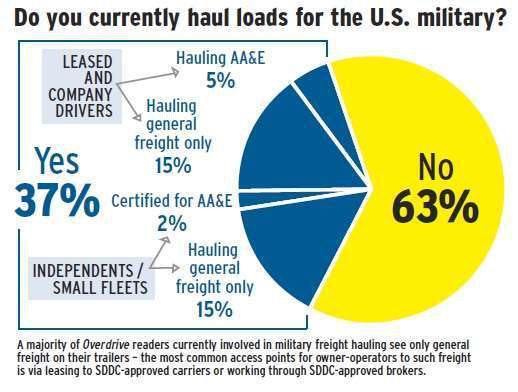
If you need to sue a freight broker, examine the contract first, then send a letter of demand to the broker. It is important to protect your rights and navigate non-payment effectively by engaging in small claims court proceedings if required.
Navigating the complexities of the freight brokerage industry can sometimes lead to disputes between carriers and brokers over non-payment or other wrongdoing. When facing such issues, it becomes crucial not only to understand the legal options available but also to take appropriate action to protect your interests.
Knowing how to sue a freight broker can offer carriers a recourse to address non-payment or illegitimate claims, but it’s essential to follow the appropriate steps and procedures to ensure a successful outcome. In this comprehensive guide, we will explore the process of suing a freight broker and provide valuable insights on how carriers can protect their rights and seek appropriate remedies.

Credit: m.youtube.com
Navigate As You Want:
Understanding Freight Broker Liability
Understanding Freight Broker Liability is crucial when it comes to knowing how to sue a freight broker. Even though brokers have a limited role in transportation, they can be held liable for negligent acts or omissions of motor carriers, making it important to understand the legalities involved in filing a claim.
| Freight brokers act as intermediaries between companies and motor carriers. |
| They are responsible for assessing and commissioning carriers to ensure safe goods transport. |
| Brokers can be held liable for negligent acts of carriers they control. |
| In case a broker fails to pay, trucking professionals can engage collection agencies. |
| Filing a claim against a broker’s surety bond through DOT is advised to protect from nonpayment. |

Credit: www.ttnews.com
Steps To Take When A Broker Doesn’t Pay
When a broker doesn’t pay, there are several steps to take in order to protect your rights and seek payment. First, examine the contract to understand the terms and conditions agreed upon. Next, contact the broker to discuss the outstanding payment and attempt to resolve the issue amicably. If the payment is still not received, it may be necessary to send a letter of demand to formally request payment. Additionally, it’s important to make a formal complaint to the appropriate authorities, such as the FMCSA, if the issue persists. In some cases, it may be beneficial to engage the services of a collection agency to pursue the owed payment through legal means. Taking these steps can help protect your rights as a carrier and ensure fair compensation for your services.
Filing A Claim Against A Freight Broker
When dealing with non-payment from a freight broker, there are steps that can be taken to pursue legal action. The first step is to file a claim against the freight broker’s surety bond through the Department of Transportation (DOT). This surety bond is required by federal law and provides protection against non-payment. If this action does not result in resolution, the next step would be to consider taking legal action in small claims court. This can be an effective way to pursue payment for services rendered without the need for extensive legal proceedings.

Credit: www.linkedin.com
Recourse Action For Nonpayment
Suing a Freight Broker: Recourse Action for Nonpayment
Taking legal recourse against a freight broker involves seeking damages for negligent hiring. If you are facing nonpayment issues, consider filing a complaint with relevant authorities. Protect your rights by filing a claim against the broker’s surety bond through the Department of Transportation (DOT). Engage the services of a collection agency if necessary. Ensure that the goods arrive safely at their destination, maintaining their original high-quality condition.
Protecting Carrier Rights
Protecting carrier rights when it comes to suing a freight broker involves verifying the status of a surety bond. To do this, a carrier can start by calling the Surety Bond company and providing them with the necessary information. It is also important to understand any past complaints against the broker. This can be done by researching online and contacting the Department of Transportation (DOT) to file a claim against the broker’s surety bond. If necessary, carriers can take further legal action by suing the broker in small claims court or seeking the services of an attorney. By staying informed and taking appropriate steps, carriers can protect their rights and ensure fair treatment in the shipping industry.
Frequently Asked Questions On How To Sue A Freight Broker
Do Freight Brokers Get Sued?
Freight brokers can be sued for the negligent acts of motor carriers they control or provide equipment to.
What To Do If A Broker Is Not Paying?
If a broker is not paying, review the contract and contact the broker. Send a letter of demand and make a formal complaint. Consider engaging a collection agency. File a claim against the broker’s surety bond through the Department of Transportation.
Small claims court is a viable next step.
How Do I Complain To Fmcsa About My Broker?
To complain to FMCSA about your broker, visit the NCCDB website to submit your complaint. Be sure to include all relevant details to support your complaint.
What Are Freight Brokers Responsible For?
A freight broker handles transportation logistics, ensuring safe delivery of goods for shippers using motor carriers.
Conclusion
While the process of suing a freight broker may seem daunting, it is essential to understand your rights as a carrier. By carefully reviewing contracts and taking necessary steps, such as contacting the broker and seeking legal assistance if needed, you can protect yourself and ensure fair treatment in the industry.
Remember, staying informed and proactive is key in handling disputes effectively.




